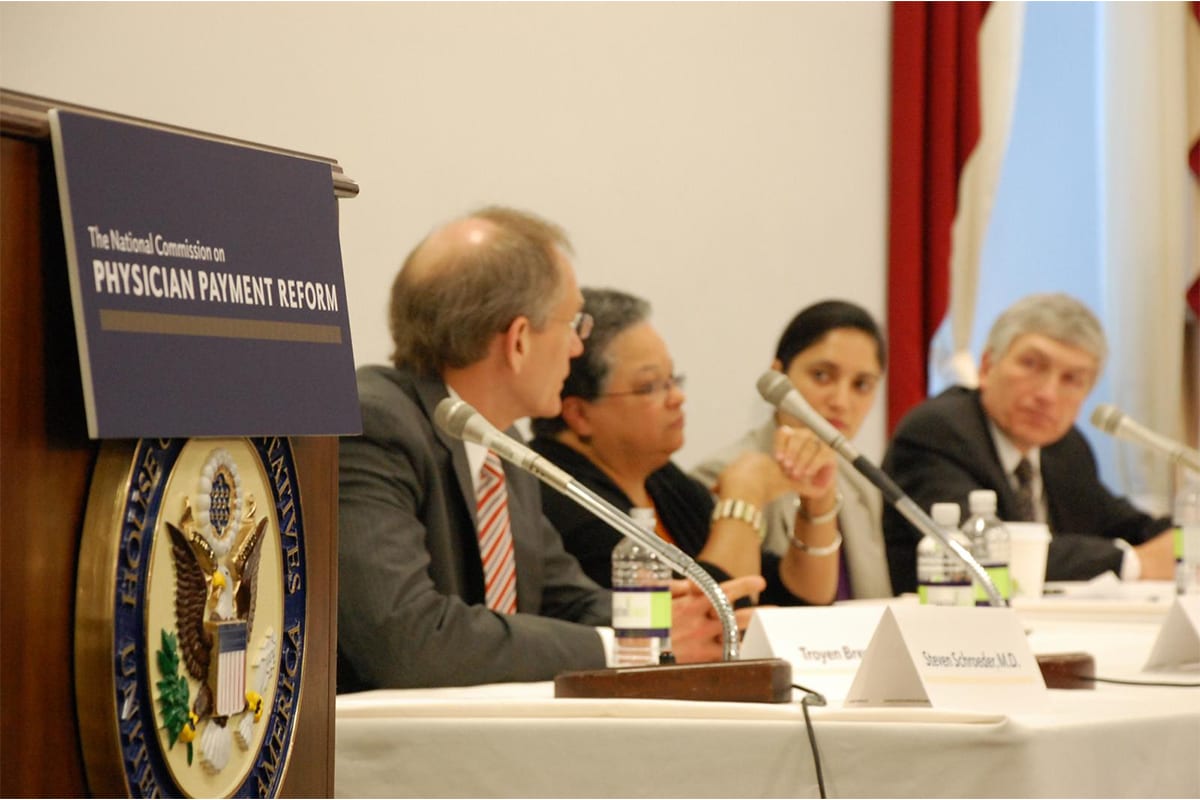Changing the Way Doctors Are Paid
By Maya Brod, March 21, 2013

March 4, 2013 The National Commission on Physician Payment Reform Capitol Hill Briefing
We’ve all heard about the problem of rising health care costs. The United States spends nearly three trillion dollars a year on health care—far more than any other developed country – yet lags on many measures of health outcomes and quality. As a proportion of the federal budget, the cost of Medicare has risen from 3.5 percent in 1975 to more than 15 percent in 2010. By 2020, Medicare is projected to consume 17 percent of the U.S. budget. So what can be done about it?
According to a report from the National Commission on Physician Payment Reform, a Burness client, changing the way doctors get paid is the first step to fixing our health care system. The report, released on March 4th, details 12 sweeping recommendations aimed at reining in health spending and improving quality of care. Among them, the Commission urges lawmakers, health providers and insurers to move away from a fee-for-service payment system to a blended payment model within five years.
The 14-member Commission was formed by the Society of General Internal Medicine and is led by former Senator Majority leader Bill Frist, M.D., and former Robert Wood Johnson Foundation president Steven Schroeder, M.D. In a joint Politico op-ed, Frist and Schroeder explain why fee-for-service is so problematic: “We pay physicians according to the number of services they provide. The skewed financial incentives inherent in a fee-for-service model promote fragmented care and encourage doctors to provide more—and more costly—care, regardless as to whether those services improve the health of patients.”
Other steps in the Commission recommendations include fast-tracking new models of care, such as patient center medical homes and Accountable Care Organizations, which reimburse doctors through fixed payments and shared savings. The Commission also calls for the elimination of the Sustainable Growth Rate, a complicated formula that was intended to control Medicare costs but has not worked in practice.
The Commission’s report was presented in a March 4th briefing on Capitol Hill, where six of the Commissioners spoke to a packed room of health providers, industry professionals, congressional staffers, advocates and policymakers on how our nation can move toward a physician payment system that will yield better results for both payers and patients.
- Watch the full webinar of the March 4th briefing on Capitol Hill.
- Read stories in Politico, The Washington Times, MedPage Today, and Kaiser Health News, for their take on the recommendations put forth by the National Commission on Physician Payment Reform.
- Read Frist and Schroeder’s commentary in the Health Affairs Blog.
